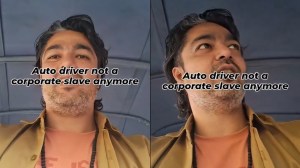Matters of age
There is no gainsaying that largescale administrative reforms are necessary in India,beginning,naturally...
There is no gainsaying that largescale administrative reforms are necessary in India,beginning,naturally,with the elite Indian Administrative Service. So when Union Law Minister Veerappa Moily promises a look at matters of recruitment and probation,the sentiment and the hint of enthusiasm in it would be shared across the country.
Criticism has been broadly directed at the recruitment policy,the examination system,the age of recruitment,among more detailed points of debate. However,a pronounced grievance is that recruitment to the civil services doesnt happen at the right age,that the system is conveniently flexible for many to walk in late and for most to stay on without accountability or fear of reprimand. At present,a candidate must be at least 21 years old and cannot be 30 as on August 1 of the year in question. The upper age limit is relaxed for a maximum of five years for SC/ ST candidates and three years for OBCs. There are many other age relaxations.
What Moily suggests then,to the extent that itll be transformed into policy,might be the big revolution in the civil services. His focus is on early recruitment (right after Class 12),to catch them young and mould them adequately. A persons fundamental ideology and opinions,he argues,are ingrained by the time of graduation,and its often difficult to train them. However,plus two,or 18 years,is probably too young. A kid barely out of school deserves more options in life and career. This is the obverse of Moilys case,and his government must weigh both sides. The other half of the plans systematic and recurrent evaluation of performance,as well as opening the civil services to outsiders after the joint secretary level too are worthy of constructive debate.


- 01
- 02
- 03
- 04
- 05





























